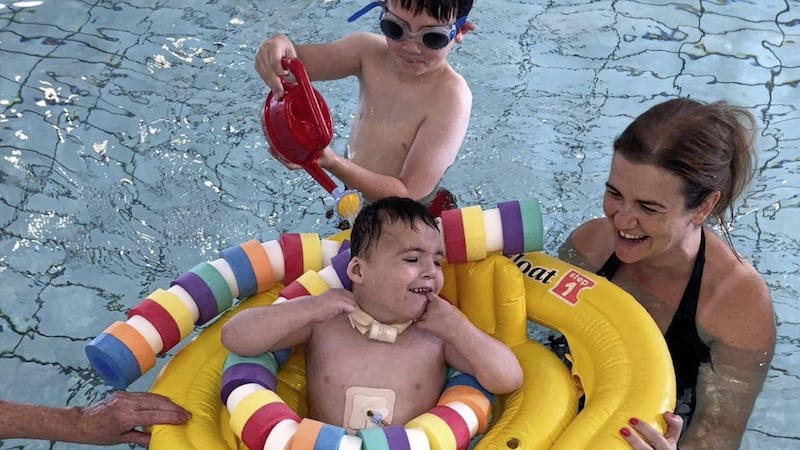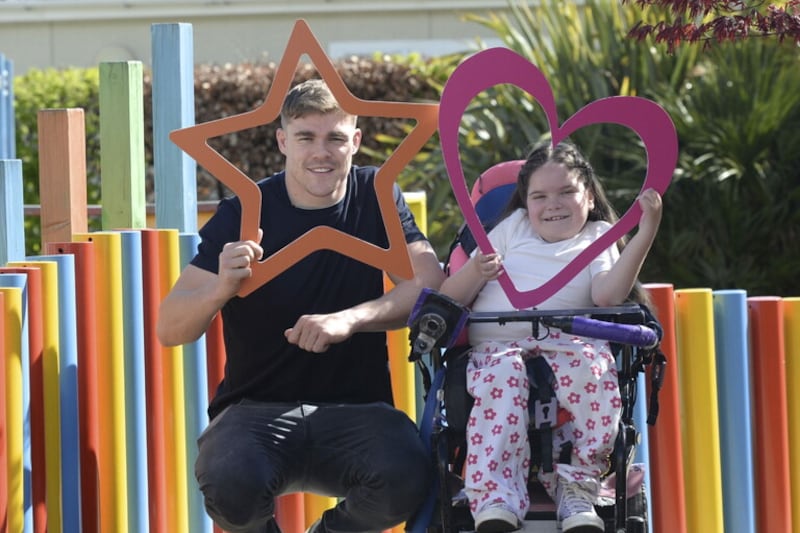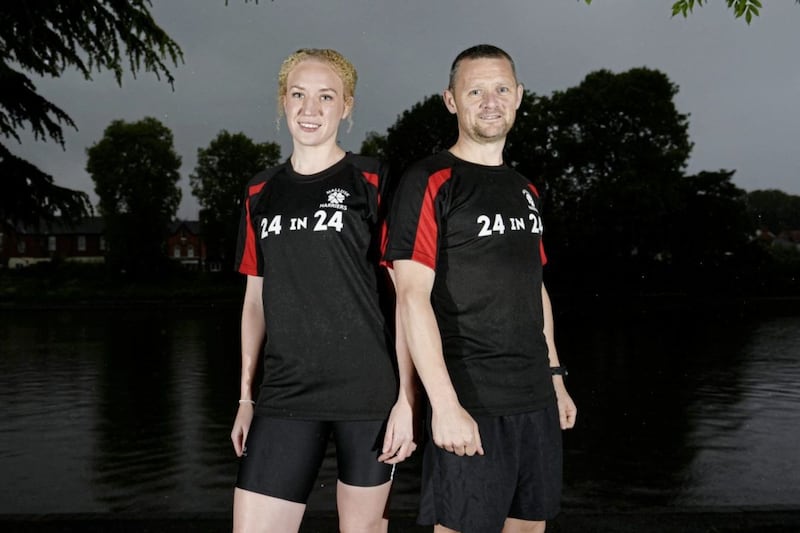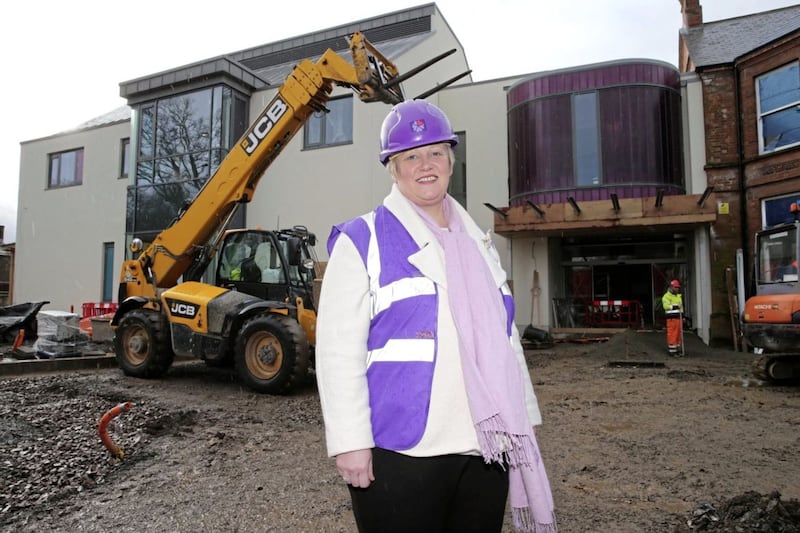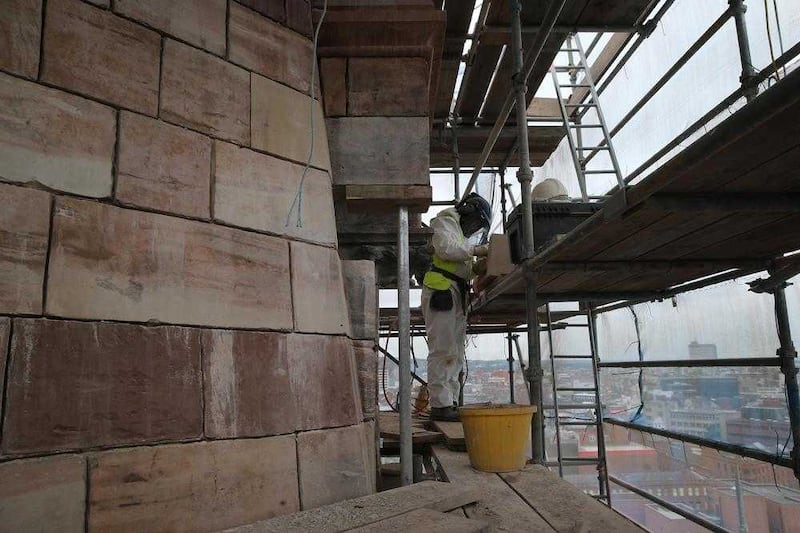WHEN a community nurse first mentioned the Children's Hospice to Lisburn parents Ann Marie and John O'Neill, they reacted with scepticism, even indignation.
“My immediate thought was 'but surely it's a place for the dying',” says Ann Marie. “We didn't think it would suit our little boy Eoin. We were reluctant, to say the least.”
Eoin, who turns seven next month and is the middle of three children, has numerous medical needs. He is partially sighted, has hearing loss, heart conditions, is tube fed and has a tracheostomy – an artificial airway. Most of Eoin’s condition comes from a genetic disorder called Cri du Chat syndrome, meaning cry of the cat. The condition is so called because children with it have a signature high pitched cry. Not Eoin though; his artificial airway bypasses his vocal chords, so his mum and dad have never heard his cry.
Their first visit to Horizon House at O'Neill Road, Newtownabbey, changed their perceptions immediately. Walking into the building, both parents were apprehensive but the warm welcome they received and the positive, uplifting vibe of the place, soon put them at ease.
“It's hard to explain, but we got a warm fuzzy feeling,” says Ann Marie. “It wasn't a place of doom and gloom; quite the opposite. We felt at home straight away and we knew Eoin was going to love it.”
For the past few years Eoin and his family have availed of three or four-night respite stays at the Children's Hospice, several times a year. Being able to relax as a family is something they all look forward to, so much so that eldest son Jay (10) refers to the hospice as "the Belfast hotel".
Between March and August, Covid restrictions meant all respite stays were put on hold. From the beginning of September, the children were allowed to return on their own, with each designated their own private living space and one-on-one care. Eoin was back for a break in November and his parents were confident dropping him off, knowing he was in the safest of hands.
"When Horizon House was closed, staff still managed to do other stuff with us,” says Ann Marie. “We were shielding with Eoin and our other two children were cooped up in the house for four months.
“The staff did things like online mindfulness and yoga sessions, arts and crafts, scavenger hunts. We had a family support worker check in on us every week. They even organised a Zoom call with Santa.
“Although we couldn't go in, we still had so much support from them. It's been such a tough year but that place has been a Godsend to us. We had two bereavements to deal with as well and the staff helped us through that.”
As a result of Eoin's condition, he is unable to stand or crawl and his development and growth are severely delayed. Though he is non-verbal, he is able to communicate in other ways, such as facial expressions. According to Ann Marie, he is able to see and hear slightly and always responds to a smile.
“He is the most expressive wee boy,” she says. “When he cries, his face screws up but there is no sound. And when he laughs, his whole body laughs too.
“In normal times, when we're at the hospice, we get to do things with him that most people take for granted, like bringing him into the pool. There's a sensory room, a soft play room, computer equipment for my older son and a park outside. It's fantastic. We've another date for him to go back in February. We're all looking forward to being able to go together as a family. That's so important to us.”
Edel Casey from Dungannon and her partner Brett Walker are another couple for whom Horizon House has proven a vital lifeline. Their three-year-old son Theo has a genetic condition that is so rare, it hasn't been fully diagnosed yet and the only other similar case is in Arizona.
Edel and Brett became concerned when Theo wasn’t meeting the normal milestones for his development at around four or five months old. Since then, they have watched his condition continue to progress, with new symptoms, such as his epilepsy, appearing all the time.
“It was a paediatrician who suggested to us that we go and visit the Children's Hospice,” recalls Edel. “I know some people can feel a bit strange about the word 'hospice' but we thought it was a good idea so we went along when Theo was 18 months old.
“During his first few stays, it became very clear to us that there was a wonderful structure to the place and that there's always someone looking after him, so we don't have to worry.
“He gets to do arts and crafts, use the sensory room and have music therapy. His last stay was in November, when he was going through a period of deterioration. It gave us a break but it's a break for him too.
“It's like a wee holiday for him. There's such a quiet and relaxing atmosphere and the staff are brilliant with him. They understand that he communicates with his eyes and they bring out the best in him.”
Theo's condition means that he regresses as he grows. Nine months ago, his parents were able to put him in a car and head off but now he needs an oxygen tent, a stats monitor and other equipment. Day trips to see relatives are few and far between.
“I genuinely don't think we could cope without the hospice,” says Edel. “That place is our lifeline. When you hear the word 'hospice' you think 'end of life' but it allows us to live our lives.”
Both Eoin and Theo are part of the Children's Hospice Little Stars Christmas campaign, which aims to raise funds to keep the excellent, holistic work going. As a charity, the Children's Hospice only receives around a third of its funding from Government – the rest comes from public donations.
One hour of specialist palliative nursing care for child with a progressive or genetic condition costs £37.25. It costs £74.50 for two hours of support for a family who have received an antenatal diagnosis that their baby has a life limiting condition. A day of specialist nursing support for children and their family in their own homes costs £279.85.
Grace Stewart, Head of Children's Services for Children's Hospice, says: “As it's Christmas, I am hoping that the public can help us to create a better end to this difficult year. My colleagues in fundraising have told me that we are facing a huge shortfall in our fundraising income. This could be catastrophic for us.
“If you can, please add us to your Christmas list and provide us with a gift to help us continue to help children like Eoin and Theo.”
To donate and for more information about the Children's Hospice Little Star appeal visit nihospice.org
